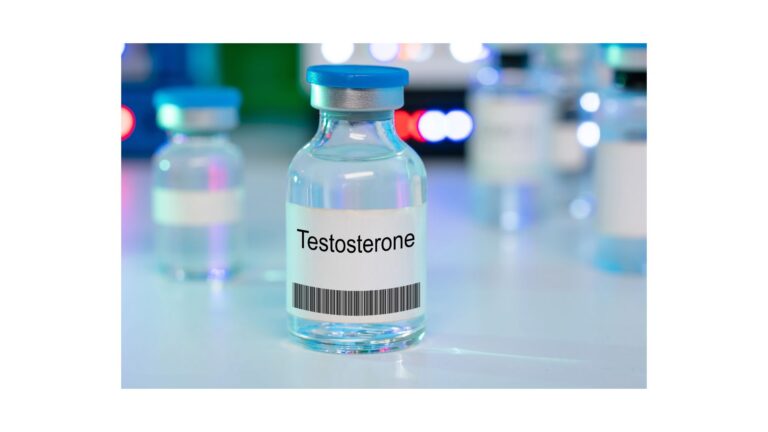In a world where vitality, strength, and well-being are highly prized, testosterone stands as a symbol of masculinity and vigor. But maintaining optimal testosterone levels isn’t just about muscle growth and libido—it’s about overall health and vitality. Whether you’re a fitness enthusiast looking to maximize gains, a middle-aged man seeking to reclaim youthful energy, or simply someone aiming for peak performance in every aspect of life, understanding how to naturally boost testosterone is key. Welcome to “The Ultimate Guide to Boosting Testosterone Naturally.” In this comprehensive resource, we’ll delve into the science behind testosterone, exploring its role in the body and why maintaining healthy levels is essential for both men and women. From lifestyle adjustments and dietary choices to exercise routines and stress management techniques, we’ll uncover the most effective strategies for optimizing testosterone production naturally. Get ready to unlock your full potential and embark on a journey toward enhanced vitality and well-being.
Stress Management Techniques to Support Testosterone Production
In today’s fast-paced world, stress has become a common adversary to our health and well-being. Not only does stress take a toll on our mental and emotional state, but it can also have profound effects on our physical health, including testosterone levels. Chronic stress can disrupt hormone balance, leading to decreased testosterone production. However, by implementing effective stress management techniques, you can support healthy testosterone levels and overall well-being. In this guide, we’ll explore eight proven strategies to help you manage stress and promote optimal testosterone production.

Practice Mindfulness Meditation
Mindfulness meditation involves focusing your attention on the present moment without judgment. Research has shown that regular meditation can reduce cortisol levels and increase testosterone levels, promoting a sense of calm and well-being. Dedicate a few minutes each day to mindfulness practice to reap these benefits.
Engage in Regular Exercise
Exercise is not only beneficial for physical health but also plays a vital role in stress management. Engaging in regular physical activity can help reduce stress hormones while stimulating the production of endorphins, the body’s natural mood elevators. Aim for a combination of cardiovascular exercise, strength training, and flexibility exercises to optimize stress relief and support testosterone production.
Prioritize Adequate Sleep
Quality sleep is essential for hormone regulation, including testosterone production. Chronic sleep deprivation can disrupt hormone balance, leading to decreased testosterone levels. Prioritize sleep hygiene practices such as maintaining a consistent sleep schedule, creating a relaxing bedtime routine, and optimizing your sleep environment to support restful sleep and hormonal health.
Incorporate Relaxation Techniques
Incorporating relaxation techniques into your daily routine can help reduce stress levels and support testosterone production. Techniques such as deep breathing exercises, progressive muscle relaxation, and guided imagery can promote relaxation and counteract the effects of chronic stress on hormone balance.
Cultivate Healthy Relationships
Social support plays a crucial role in managing stress and promoting overall well-being. Cultivate healthy relationships with friends, family, and loved ones who provide support, understanding, and encouragement. Spending time with positive influences can help buffer the impact of stress and foster emotional resilience.
Lifestyle Habits for Healthy Testosterone Levels
Maintaining healthy testosterone levels is crucial for overall well-being, vitality, and optimal functioning. While diet and exercise play significant roles, lifestyle habits also have a profound impact on testosterone production. By adopting certain lifestyle practices, you can support healthy testosterone levels and enhance your quality of life. Let’s explore key lifestyle habits that promote hormonal balance and vitality.

- Balanced Nutrition: Consume a diet rich in nutrient-dense foods, including lean proteins, healthy fats, fruits, vegetables, and whole grains. Prioritize foods high in zinc, vitamin D, and omega-3 fatty acids, which are essential for testosterone production.
- Regular Exercise: Engage in a combination of resistance training, high-intensity interval training (HIIT), and cardiovascular exercise to stimulate testosterone production and maintain muscle mass.
- Adequate Sleep: Prioritize quality sleep by establishing a consistent sleep schedule, creating a relaxing bedtime routine, and optimizing your sleep environment to support hormonal balance.
- Stress Management: Practice stress-reduction techniques such as mindfulness meditation, deep breathing exercises, and relaxation techniques to lower cortisol levels and promote healthy testosterone production.
By incorporating these lifestyle habits into your daily routine, you can support healthy testosterone levels and optimize your overall health and well-being.
Effective Exercise Strategies for Increasing Testosterone
Exercise is not only essential for physical fitness but also plays a significant role in hormonal health, including testosterone production. By incorporating specific exercise strategies into your routine, you can naturally boost testosterone levels and promote overall well-being. In this guide, we’ll explore eight effective exercise strategies tailored to enhance testosterone production and optimize your fitness regimen.
Prioritize Compound Movements
Compound exercises engage multiple muscle groups simultaneously, making them highly effective for stimulating testosterone production. Incorporate compound movements such as squats, deadlifts, bench presses, and pull-ups into your workouts to maximize muscle activation and testosterone release.
Lift Heavy Weights
Heavy resistance training with challenging weights is key to eliciting a strong hormonal response, including testosterone release. Focus on lifting weights that are challenging enough to fatigue your muscles within 6-12 repetitions per set. Gradually increase the weight as your strength improves to continue stimulating testosterone production.
Include High-Intensity Interval Training (HIIT)
HIIT involves alternating between short bursts of high-intensity exercise and brief periods of rest or low-intensity activity. This form of exercise has been shown to boost testosterone levels and improve metabolic health. Incorporate HIIT workouts, such as sprints, cycling, or circuit training, into your routine 2-3 times per week for optimal results.
Optimize Rest and Recovery
Adequate rest and recovery are essential for optimizing testosterone production and muscle growth. Ensure you allow sufficient time for muscle recovery between workouts by incorporating rest days into your exercise schedule and prioritizing quality sleep. Proper nutrition and hydration also play a crucial role in supporting recovery and hormone balance.
Implement Progressive Overload
Progressive overload involves gradually increasing the intensity, volume, or complexity of your workouts over time to continually challenge your muscles and stimulate growth. By progressively increasing the demands placed on your muscles, you can promote ongoing testosterone production and muscle development.
Conclusion
Boosting testosterone levels naturally is achievable with the right combination of lifestyle changes, supplements, and habits. By incorporating the tips and strategies outlined in this guide, you can take control of your hormone levels and experience a significant improvement in your overall health and wellbeing.
If you’re ready to take the first step towards optimizing your testosterone levels, we invite you to contact us at Lotus Healthcare And Aesthetic in Panama City, FL. Our team of experienced healthcare professionals is dedicated to providing personalized guidance and support to help you achieve your health goals. Schedule a consultation and start your journey towards a healthier, more balanced you.



